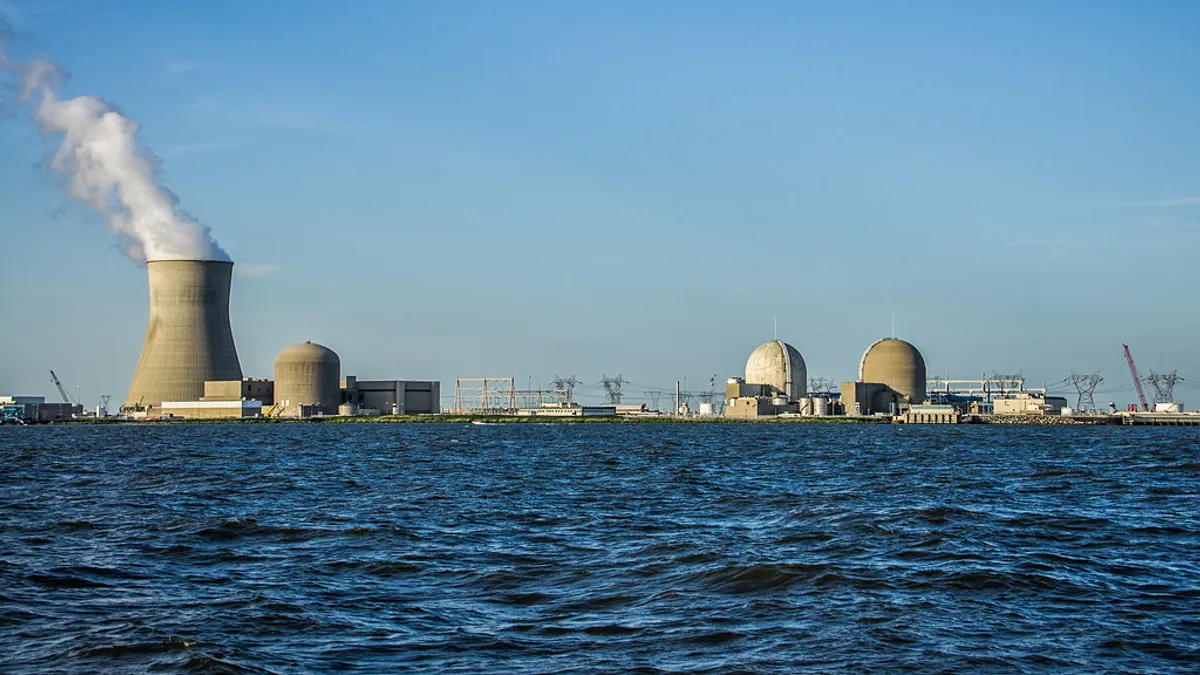Dive Brief:
- The sale of Public Service Enterprise Group's (PSEG) solar portfolio is part of a larger strategy, one that has the New Jersey-based power company betting big on another source of renewable energy – offshore wind turbines.
- PSEG announced on May 5 it had agreed to sell its 467 MW dc Solar Source portfolio to Quattro Solar, LLC, an affiliate of LS Power. The package includes 25 solar facilities. PSEG said it expects the sale of its solar assets to close in the second quarter, with the "net carrying value" of the portfolio's assets and liabilities at approximately $500 million.
- PSEG's sale of its Solar Source portfolio came just a few weeks after the utility cut a deal to buy a 25% stake in the 1,100 MW offshore project Ocean Wind, off the coast of New Jersey.
Dive Insight:
As the Biden administration pushes forward with plans to spend big on green infrastructure, on the surface it would seem to be an odd time for a major utility to be selling its solar assets.
But PSEG's decision to exit solar is part of a larger plan for a sweeping reconfiguration of its energy generation portfolio.
For starters, the move into wind dovetails with the Biden Administration's recent release of an ambitious national wind energy plan, with a goal of deploying 30 GW of offshore wind turbines by 2030, and the anticipation of additional clean energy subsidies.
The Biden administration plan received a nod from PSEG Chairman, President and CEO Ralph Izzo in a recent quarterly earning calls with analysts.
By contrast, government support for the solar sector in New Jersey is in flux, with an ongoing debate over what those subsidies should look like, said Jeff Tittel, former New Jersey state chapter director for the Sierra Club.
"I think [PSEG has] decided to bet heavily on offshore wind transmission, AMI (Advanced Metering Infrastructure) and battery storage," Tittel said. "I think that is the direction they are headed."
Meanwhile, along with selling its solar assets, PSEG had also put its fossil fuel powered plants on the market as well.
Last July, PSEG announced plans to put on the sales block 6,750 MW worth of fossil-fuel powered plants in New Jersey, Connecticut, New York and Maryland.
In his remarks to analysts last week, Izzo, PSEG's CEO, said the company anticipates "reaching an agreement by mid-year," though he did not name potential suitors.
The sale of the fossil fuel plants, along with its solar facilities, is part of a larger plan to exit the business of operating merchant plants that produce electricity for the much more volatile and lightly regulated competitive market.
Instead, PSEG is opting to go back to a more traditional model as a regulated electric and gas utility, with more predictable, steady returns but far less volatility.
"Our intent is to accelerate the transformation of PSEG into a primarily regulated electric and gas utility — a plan we have been executing successfully for more than a decade," Izzo said in a press release last year.
As part of this plan, PSEG is also doubling down on the three nuclear plants in New Jersey it owns outright in one case and shares ownership with Exelon in two others.
The decision by the state Board of Public Utilities (BPU) to boost subsidies for the three nuclear plants to $300 million is likely a key factor in the decision to hang onto the aging facilities, according to Tittel and remarks by company executives.
"This was the maximum amount that the BPU could have awarded, and we are appreciative of the support received from the many community, labor, business, environmental and employee organizations," Izzo noted about the New Jersey's $300 million nuclear subsidy in his remarks to analysts.
The plants also play a key role, both in producing the majority of New Jersey's carbon free power and in helping PSEG meet the state's carbon emissions goals. New Jersey Gov. Phil Murphy has set a goal to use 50% clean energy and 100% renewable power by 2050.














